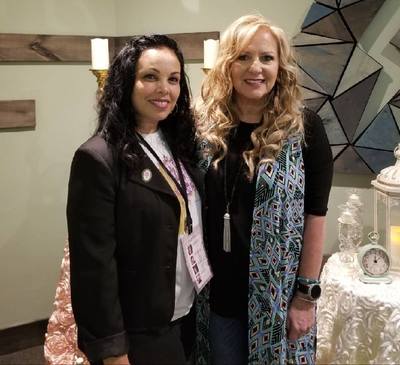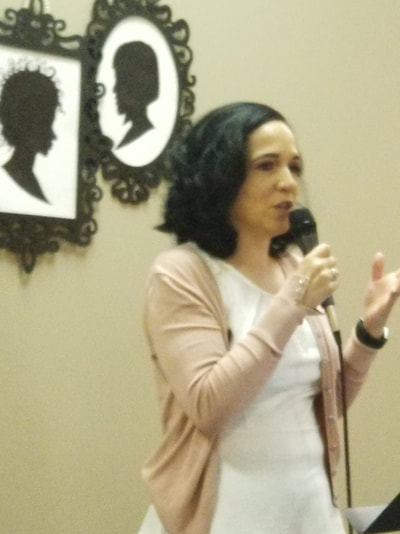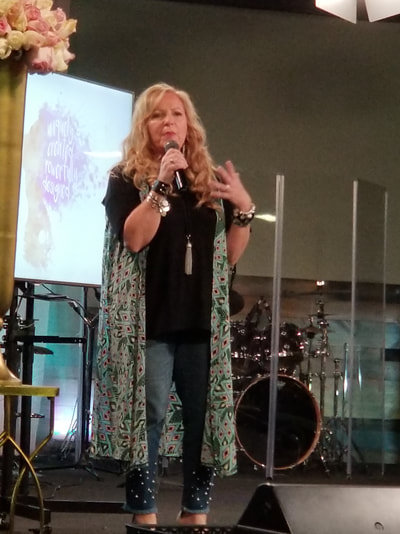It was wonderful catching up with old friends and praising the Lord together, sharing meals and experiencing the presence of Lord together.
Today, I need to take my mother to several appointments and then I will rest. I want to process all that God has done in my life and in the lives of others. I want to spend some time filing the information in my mind so that I can retrieve it as needed. It matters where we put things. Valuables are put in special places so they remain safe.
Today, think about what's important. Take time to ask Daddy God to define your experiences and show you hidden revelation. Ask Him for wisdom and understanding. Request His help in processing all you are learning about the Kingdom, yourself and the world. Be a life learner because the world is a small place and you never know who you may run in to, or what appointments God has in store for you..
Every leader needs mentors and models – typically other leaders just ahead of where we are in our growth and our journey. And every leader also needs to be mentoring and modeling those just behind us. This is the only way for discipleship to take on the multi-generational nature described by Paul in 2 Timothy 2:2, “You have heard me teach things that have been confirmed by many reliable witnesses. Now teach these truths to other trustworthy people who will be able to pass them on to others.” (NLT)
In order to both mentor and be mentored effectively, it’s important to see how the relationship between Paul and Timothy developed over time. It unfolded in three phases.
Phase One: ParenthoodIn Paul’s first letter to Timothy, he addresses him as “my true son in the faith.” (1 Timothy 1:2) We first meet Timothy in Acts 16 when Paul is heading out on his second missionary journey. He stops in Lystra to pick up the young disciple who accompanies him, assists him, and serves as a sort of apprentice under him. Timothy’s biological father was Greek, but no evidence is ever given that he was a Christian. So Paul filled the shoes of a spiritual father to Timothy.
My heart hurts as I look around at the number of young Pastors and leaders who are enthusiastically serving with big dreams but who lack spiritual fathers in the generation ahead of them. The past is always part of our future. I recommend that at least 25% of a church leader’s reading be spent in pre-Reformation era writings and another 25% from the Reformation to the modern missionary age. Another 25% of our reading should be drawn from the generation just previous to ours and only the remaining 25% among contemporary authors.
We need a sense of parenthood as we mentor because it’s vital that we be grounded as we dream big dreams.
Phase Two: PacesettingThe second phase of our ministry mentoring is pacesetting – being the example of what mature ministry looks like. In Paul’s second letter to Timothy, he points out that, “you know what I teach, and how I live, and what my purpose in life is. You know my faith, my patience, my love, and my endurance…” (2 Timothy 3:10-11 NLT) Paul sets the pace with his life and challenges Timothy to learn by keeping up and emulating his lifestyle.
You’ve probably heard people say that Christianity is always one generation from extinction. I think that might be oversimplifying it, but the fact is that no generation is exempt from the call to fulfill the Great Commission or to serve God’s purposes as fully as possible. The next generation is always watching, so we get to set the pace.
Phase Three: PartneringOver in the book of Romans, there is a somewhat obscure reference that Paul makes to Timothy in chapter 16, verse 21, “Timothy, my fellow worker, sends you his greetings.” Timothy has gone from being a son to a student and now to being a colleague and a co-laborer. We spend plenty of time desiring and praying for more laborers, but perhaps not enough time investing in those with the potential to become our partners in the mission.
We serve today because of the repetition of this three-phase process for centuries. It didn’t stop with Timothy. The baton has been passed to you who are reading this, and it is our responsibility to be parents, pacesetters, and partners with the next generation until Jesus comes!
Pastor Rick Warren
Rick Warren is the founding pastor of Saddleback Church, one of America's largest and most influential churches. He is the author of the New York Times bestseller The Purpose Driven Life. His book, The Purpose Driven Church, was named one of the 100 Christian books that changed the 20th century. Pastor Rick started The PEACE Plan to show the local church how God works through ordinary people to address the five global giants of spiritual emptiness, self-serving leadership, poverty, disease, and illiteracy. You can listen to Daily Hope, Pastor Rick’s daily 25-minute audio teaching, or sign up for his free daily devotionals at PastorRick.com. He is also the founder of Pastors.com, a global online community created to encourage pastors.








 RSS Feed
RSS Feed